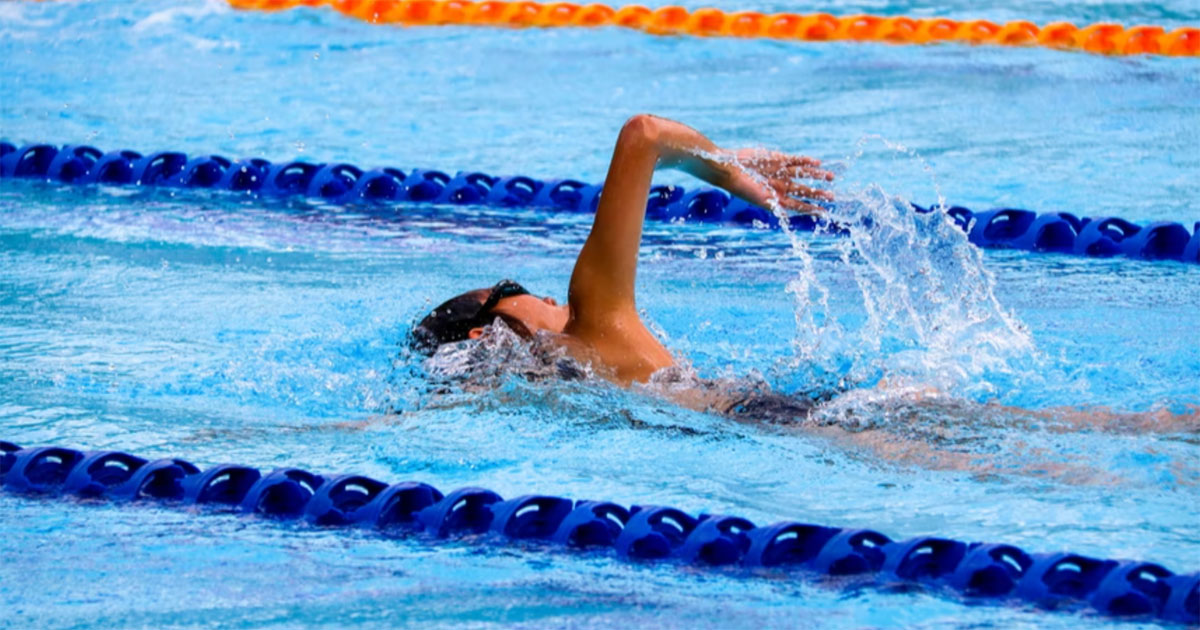Follow us on Telegram for the latest updates: https://t.me/mothershipsg
Fina, swimming's world governing body, has voted to ban transgender athletes from competing in women's races if they have gone through male puberty.
The new policy requires transgender competitors to have completed their transition by the age of 12 to qualify to compete in women's competitions.
Fina will also aim to establish an "open" category for swimmers whose gender identity is different than their birth sex.
Passing of new policy
This new policy was passed with 71 per cent of the vote from 152 Fina members, BBC, Sky News, and The Independent reported.
The decision was reached during an extraordinary general congress at the ongoing World Championships in Budapest.
Female-to-male transgender athletes can compete in men's races
Fina added that female-to-male transgender athletes -- transgender men -- are fully eligible to compete in men's swimming competitions, according to Reuters.
Fina president Husain Al-Musallam said: "We have to protect the rights of our athletes to compete, but we also have to protect competitive fairness at our events, especially the women's category at Fina competitions."
"Fina will always welcome every athlete. The creation of an open category will mean that everybody has the opportunity to compete at an elite level. This has not been done before, so Fina will need to lead the way. I want all athletes to feel included in being able to develop ideas during this process."
Fina members had heard a report from a transgender task force made up of leading figures from the world of medicine, law and sport, before coming to their decision.
What one expert said
According to BBC, Sandra Hunter, an exercise physiologist specialising in sex and age differences in athletic performance, said athletes do retain an advantage from going through male puberty.
Hunter, who was on the expert panel, said: "By 14 years or older, the difference between boys and girls is substantial. That's due to the advantages experienced due to the physiological adaptations in testosterone and the possession of the Y chromosome."
"Some of these physical advantages are structural in origin such as height, limb length, heart size, lung size and they will be retained, even with the suppression or reduction of testosterone that occurs in the transition from male to female."
Decision called out as 'discriminatory'
Athlete Ally, an LGBTQ athletic advocacy group responded to the announcement and said the eligibility criteria is "discriminatory".
FINA’s new eligibility criteria for transgender athletes and athletes with intersex variations is discriminatory, harmful, unscientific and not in line with the 2021 IOC principles. If we truly want to protect women’s sports, we must include all women. https://t.co/MDjrWB6GrU
— Athlete Ally (@AthleteAlly) June 19, 2022
Background
The conversation around transgender rights in sports intensified after University of Pennsylvania swimmer Lia Thomas became the first transgender NCAA champion in Division I history after winning the women's 500-yard freestyle earlier this year, according to Reuters.
The discussion surrounded balancing inclusivity, while ensuring there is no unfair advantage.
Thomas swam for the Pennsylvanian men's team for three seasons before starting hormone replacement therapy in spring 2019.
She has since broken records for her university swimming team.
Thomas has expressed a desire to compete for a place at the Olympics, but the new Fina rule would block her participation, according to Reuters.
USA Swimming updated its policy for elite swimmers in February addressing transgender athletes swimming in elite events, which included criteria that aim to reduce any unfair advantage, such as testosterone tests for 36 months before competitions, according to BBC.
Controversies over the participation of transgender athletes in female categories have impacted cycling, swimming, weightlifting and other sports over the past year.
Top photo via Unsplash
If you like what you read, follow us on Facebook, Instagram, Twitter and Telegram to get the latest updates.
